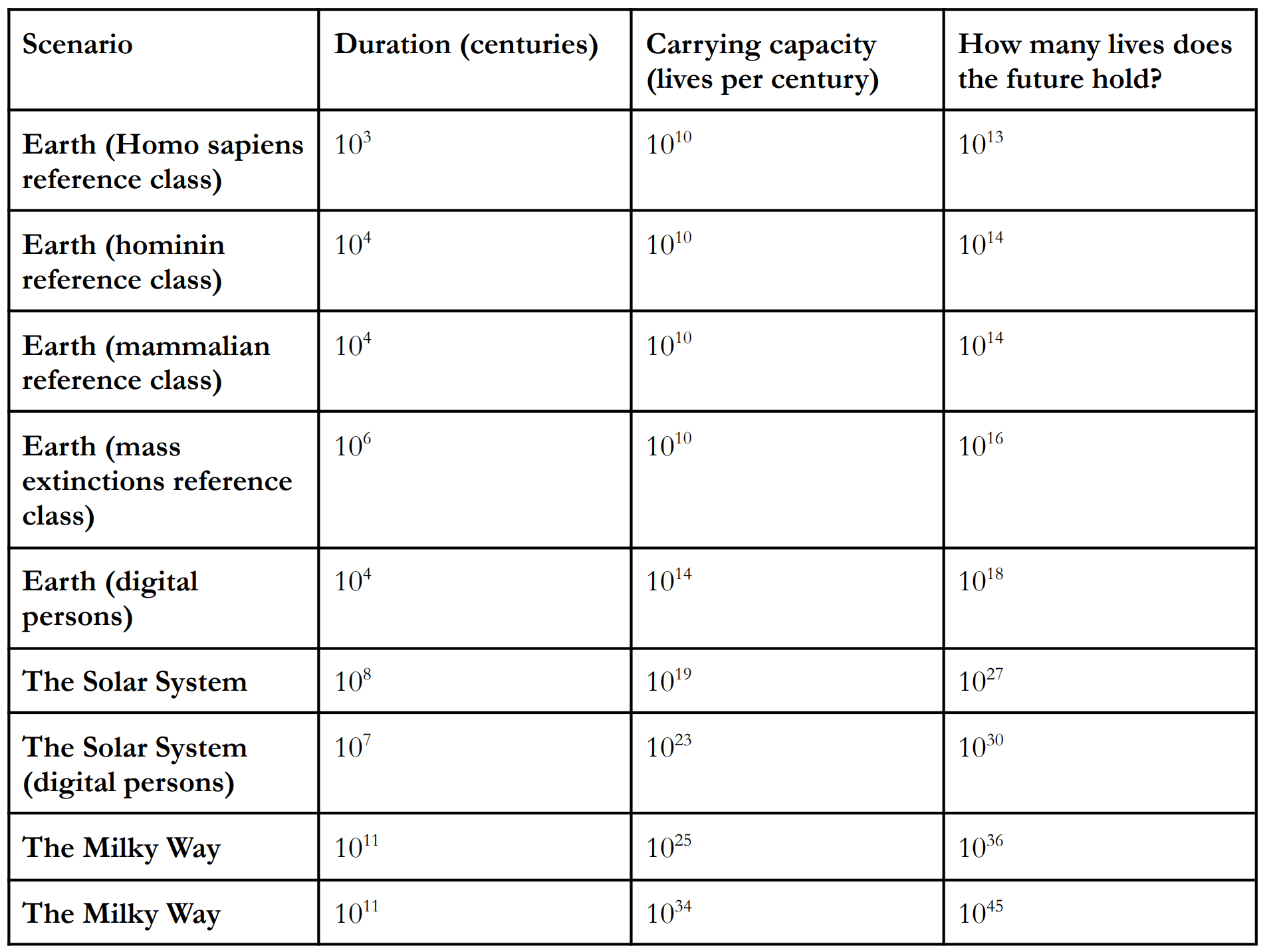Note: as a result of the discussions I’ve had here in the comment section and elsewhere, my views have changed since I made this post. I no longer think permanently stalling technological progress is a realistic option, and am questioning whether a long-term AI development pause is even feasible. -(-H.F., Jan 15., 2024)
———
By this, I mean a world in which:
- Humans remain the dominant intelligent, technological species on Earth's landmasses for a long period of time (> ~10,000 years).
- AGI is never developed, or it gets banned / limited in the interests of human safety. AI never has much social or economic impact.
- Narrow AI never advances much beyond where it is today, or it becomes banned / limited in the interests of human safety.
- Mind uploading is impossible or never pursued.
- Life extension (beyond modest gains due to modern medicine) isn't possible, or is never pursued.
- Any form of transhumanist initiatives are impossible or never pursued.
- No contact is made with alien species or extraterrestrial AIs, no greater-than-human intelligences are discovered anywhere in the universe.
- Every human grows, peaks, ages, and passes away within ~100 years of their birth, and this continues for the remainder of the human species' lifetime.
Most other EAs I've talked to have indicated that this sort of future is suboptimal, undesirable, or best avoided, and this seems to be a widespread position among AI researchers as well (1). Even MIRI founder Eliezer Yudkowsky, perhaps the most well-known AI abolitionist outside of EA circles, wouldn't go as far as to say that AGI should never be developed, and that transhumanist projects should never be pursued (2). And he isn't alone -- there are many, many researchers both within and outside of the EA community with similar views on P(extinction) and P(societal collapse), and they still wouldn't accept the idea that the human condition should never be altered via technological means.
My question is why can't we just accept the human condition as it existed before smarter-than-human AI (and fundamental alterations to our nature) were considered to be more than pure fantasy? After all, the best way to stop a hostile, unaligned AI is to never invent it in the first place. The best way to avoid the destruction of future value by smarter-than-human artificial intelligence is to avoid obsession with present utility and convenience.
So why aren't more EA-aligned organizations and initiatives (other than MIRI) presenting global, strictly enforced bans on advanced AI training as a solution to AI-generated x-risk? Why isn't there more discussion of acceptance (of the traditional human condition) as an antidote to the risks of AGI, rather than relying solely on alignment research and safety practices to provide a safe path forward for AI (I'm not convinced such a path exists)?
Let's leave out the considerations of whether AI development can be practically stopped at this stage, and just focus more on the philosophical issues here.
References:
- Katya_Grace (EA Forum Poster) (2024, January 5). Survey of 2,778 AI authors: six parts in pictures.
- Yudkowsky, E. S. (2023, March 29). The only way to deal with the threat from AI? Shut it down. Time. https://time.com/6266923/ai-eliezer-yudkowsky-open-letter-not-enough/



I've had to sit with this comment for a bit, both to make sure I didn't misunderstand your perspective and that I was conveying my views accurately.
I agree that population ethics can still be relevant to the conversation even if its full conclusion isn't accepted. Moral problems can arise from, for instance, a one-child policy, and this is in the purview of population ethics without requiring the acceptance of some kind of population-maximizing hedonic system (which some PE proponents seem to support).
As for suffering--it is important to remember what it actually is. It is the pain of wanting to survive but being unable to escape disease, predators, war, poverty, violence, or myriad other horrors. It's the gazelle's agony at the lion's bite, the starving child's cry for sustenance, and the dispossessed worker's sigh of despair. It's easy (at least for me) to lose sight of this, of what "suffering" actually is, and so it's important for me to state this flat out.
So, being reminded of what suffering is, let's think about the kind of world where it can flourish. More population = more beings capable of suffering = more suffering in existence, for all instantiations of reality that are not literally perfect (since any non-perfect reality would contain some suffering, and this would scale up linearly with population). So lower populations are better from a moral perspective, because they have lower potential for suffering.
Most people I've seen espouse a pro-tech view seem to think (properly aligned) smarter-than-human AI will bring a utopia, similar to the paradises of many myths and faiths. Unless it can actually do that (and I have no reason to believe it will), suffering-absence (and therefore moral good, in my perspective) will always be associated with lower populations of sentient beings.